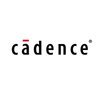Filter interviews by
Applied Materials Quality Engineer Interview Questions and Answers
Applied Materials Quality Engineer Interview Experiences
1 interview found
I applied via Naukri.com and was interviewed in Mar 2022. There were 3 interview rounds.

(1 Question)
- Q1. Where to use TIG and mig
- Ans.
TIG welding is used for precision welding of thin materials while MIG welding is used for thicker materials and faster welding.
TIG welding is ideal for welding aluminum, stainless steel, and other non-ferrous metals
MIG welding is commonly used for welding steel, iron, and other ferrous metals
TIG welding produces high-quality welds with minimal distortion and no spatter
MIG welding is faster and more efficient for thicke...
(2 Questions)
- Q1. Salary expectation, notice period of present company
- Q2. Do you relocate to existing plant here
- Ans.
Yes, I am willing to relocate to the existing plant.
I am open to relocating for the right opportunity.
I understand the importance of being present at the plant for effective quality control.
I have previous experience relocating for work.
I am flexible and adaptable to new environments.
Interview Preparation Tips
- Technical
Top trending discussions







Interview questions from similar companies

I applied via Referral and was interviewed before Jan 2021. There were 5 interview rounds.
Interview Questionnaire
2 Questions
- Q1. Basic data structures questions from bit manipulation, trees, arrays, string
- Q2. Questions related to previous company work.
Interview Preparation Tips
I applied via LinkedIn and was interviewed in May 2022. There were 3 interview rounds.

Easy questions were there in round 10 . . . . . . .
(2 Questions)
- Q1. Easy questions. . . . . . . . .
- Q2. Everything from fundamentals.....
Interview Preparation Tips

I applied via Company Website and was interviewed in Nov 2023. There was 1 interview round.
(4 Questions)
- Q1. What is SPC, How we will calculate Cp and Cpk, Difference b/w sigma and Std dev, Which should be concentrate first whether Cp or Cpk
- Ans.
SPC is Statistical Process Control used to monitor and control quality. Cp and Cpk measure process capability. Sigma is population standard deviation.
SPC is a statistical method used to monitor and control processes to ensure quality standards are met.
Cp and Cpk are indices used to measure process capability. Cp measures how well the process fits within the specification limits, while Cpk measures how centered the proc...
- Q2. Drawing details GD and T., What is basic dimensions, MMC, LMC, where it will be used
- Q3. What is MSA, GAGE R and R, What is output in GRR, what will be be change based on result in GRR whether Instrument or Appraiser training, what NDC and how it will affect process
- Ans.
MSA stands for Measurement System Analysis. GAGE R&R is a method to assess measurement system variation. NDC refers to the Number of Distinct Categories.
MSA is a statistical method used to evaluate the measurement system's ability to provide accurate and reliable data.
GAGE R&R is a specific MSA technique used to assess the variation contributed by the measurement system itself.
The output of GAGE R&R is typically expres...
- Q4. Six sigma process, Where Spc will come in Six sigma process
- Ans.
SPC (Statistical Process Control) is a key tool in the Six Sigma process for monitoring and controlling process variation.
SPC is used to collect and analyze data in real-time to ensure that a process is stable and capable of meeting customer requirements.
It involves the use of control charts to monitor process performance and identify any special causes of variation.
SPC helps in identifying and addressing process issue...

Senior Engineer Interview Questions & Answers
Advanced Micro Devicesposted on 27 Jul 2024
(2 Questions)
- Q1. Last Project details
- Ans.
Designed and implemented a cloud-based data analytics platform for real-time monitoring of network performance.
Led a team of 5 engineers in developing the platform using AWS services such as EC2, S3, and Lambda functions
Integrated data visualization tools like Tableau for generating reports and dashboards
Implemented machine learning algorithms for predictive analysis of network outages
Collaborated with stakeholders to ...
- Q2. SV -UVM questions

I applied via Company Website and was interviewed before May 2023. There was 1 interview round.
Questions related to digital and Analog electronics were asked

I applied via Referral and was interviewed before Jul 2022. There were 3 interview rounds.

(1 Question)
- Q1. Questions about Thermal basics. JD also about melting point temperatures
(1 Question)
- Q1. Salary negotiations and joining date details

I applied via Approached by Company and was interviewed in Feb 2024. There were 3 interview rounds.
(2 Questions)
- Q1. What were your previous projects that you have worked on
- Ans.
I have worked on projects related to developing software for autonomous vehicles and implementing machine learning algorithms for predictive maintenance.
Developed software for autonomous vehicles to improve navigation and obstacle avoidance
Implemented machine learning algorithms for predictive maintenance in manufacturing plants
Collaborated with cross-functional teams to integrate new technologies into existing systems
- Q2. What all your technical skills and stacks that you have previously used for your projects
- Ans.
I have experience with Java, Python, SQL, AWS, Docker, and Kubernetes in my previous projects.
Java
Python
SQL
AWS
Docker
Kubernetes
(2 Questions)
- Q1. What is docker and why do we use it for containerising applications
- Ans.
Docker is a platform for developing, shipping, and running applications in containers.
Docker allows applications to be isolated in containers, making them portable and easy to deploy across different environments.
Containers share the host OS kernel but run as isolated processes, providing lightweight and efficient virtualization.
Docker simplifies the process of packaging applications and their dependencies, ensuring co...
- Q2. What is database normalisation and how your project benefited from it in the past
- Ans.
Database normalization is the process of organizing data in a database to reduce redundancy and improve data integrity.
Database normalization involves breaking down data into smaller, more manageable tables and defining relationships between them.
It helps in reducing data redundancy, improving data integrity, and making the database more efficient.
For example, in a project I worked on, we normalized the database by spl...
(2 Questions)
- Q1. What has been your experience with challenging projects
- Ans.
I have extensive experience working on challenging projects in various industries.
Led a team in developing a complex software solution for a major client
Managed a project with tight deadlines and limited resources
Implemented innovative solutions to overcome technical obstacles
Collaborated with cross-functional teams to deliver successful outcomes
- Q2. How would you approach learning about new domain and technologies with a different background
- Ans.
I would approach learning about new domain and technologies with a different background by leveraging my existing skills, seeking out resources, and collaborating with experts in the field.
Identify key concepts and terminology in the new domain
Seek out online courses, tutorials, and books to gain foundational knowledge
Collaborate with colleagues or mentors who have experience in the new domain
Experiment with hands-on p...
Interview Preparation Tips
- IT Projects
- Python
- Reactjs
- Django
- Databases
Skills evaluated in this interview

I applied via Campus Placement and was interviewed in Jul 2023. There were 3 interview rounds.
It was a online round with apti and coding mcqs and 2 coding questions which were very easy
(2 Questions)
- Q1. Difference between interface and class in java
- Ans.
In Java, a class is a blueprint for creating objects, while an interface is a reference type similar to a class that can contain only constants, method signatures, default methods, static methods, and nested types.
Classes can have constructors, fields, methods, and can be instantiated to create objects.
Interfaces cannot be instantiated and can only contain method signatures and constants.
A class can implement multiple ...
- Q2. All the questions in the interview were based on the resume.
(1 Question)
- Q1. General and general awareness questions example what are ur goals etc.
Skills evaluated in this interview

I applied via Company Website and was interviewed before Jan 2023. There were 2 interview rounds.
Simple Python Coding questions.
(1 Question)
- Q1. Logical questions on Memory allocation.
Interview Preparation Tips
Applied Materials Interview FAQs
Tell us how to improve this page.
Applied Materials Interviews By Designations
- Applied Materials Senior Software Engineer Interview Questions
- Applied Materials Mechanical Engineer Interview Questions
- Applied Materials Data Scientist Interview Questions
- Applied Materials Manufacturing Engineer Interview Questions
- Applied Materials Technical Lead Interview Questions
- Applied Materials Software Engineer Interview Questions
- Applied Materials Software Developer Interview Questions
- Applied Materials Technical Writer Interview Questions
- Show more
Interview Questions for Popular Designations
- Quality Inspector Interview Questions
- Senior Quality Engineer Interview Questions
- Quality Controller Interview Questions
- Quality Assurance Interview Questions
- Quality Manager Interview Questions
- Quality Executive Interview Questions
- Quality Assurance Officer Interview Questions
- Quality Assurance Quality Control Engineer Interview Questions
- Show more
Interview Questions from Similar Companies
Fast track your campus placements
|
Technical Lead
258
salaries
| ₹12.3 L/yr - ₹44.7 L/yr |
|
Senior Software Engineer
128
salaries
| ₹10 L/yr - ₹30 L/yr |
|
Manufacturing Engineer
90
salaries
| ₹5.5 L/yr - ₹16 L/yr |
|
Software Engineer
89
salaries
| ₹6 L/yr - ₹20.7 L/yr |
|
Mechanical Engineer
65
salaries
| ₹6 L/yr - ₹20 L/yr |

Qualcomm

Intel

TDK India Private Limited

Molex
- Home >
- Interviews >
- Applied Materials Interview Questions >
- Applied Materials Quality Engineer Interview Questions

















